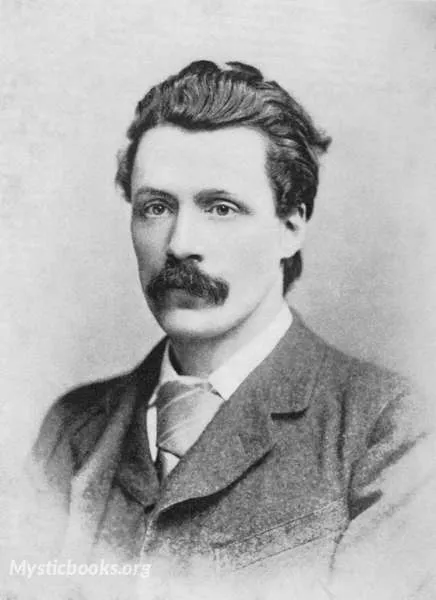
Timeline
Title
Country/Nationality
George Gissing
George Robert Gissing was an English novelist, who published 23 novels between 1880 and 1903. His best-known works have reappeared in modern editions and include The Nether World (1889), New Grub Street (1891) and The Odd Women (1893).
Gissing was born on 22 November 1857 in Wakefield, Yorkshire, the eldest of five children of Thomas Waller Gissing, who ran a chemist's shop, and Margaret (née Bedford). His siblings were: William, who died aged twenty; Algernon, who became a writer; Margaret; and Ellen. His childhood home in Thompson's Yard, Wakefield, is maintained by The Gissing Trust.
Gissing was educated at Back Lane School in Wakefield, where he was a diligent and enthusiastic student. His serious interest in books began at the age of ten when he read The Old Curiosity Shop by Charles Dickens and subsequently, encouraged by his father and inspired by the family library, his literary interest grew. Juvenilia written at this time was published in 1995 in The Poetry of George Gissing. He was also skilled at drawing. Gissing's father died when he was 12 years old, and he and his brothers were sent to Lindow Grove School at Alderley Edge in Cheshire, where he was a solitary student who studied hard.
In 1872, after an exceptional performance in the Oxford Local Examinations, Gissing won a scholarship to Owens College, forerunner of the University of Manchester. There he continued his intense studies, and won many prizes, including the Poem Prize in 1873 and the Shakespeare scholarship in 1875. He also began a relationship with Marianne "Nell" Harrison.
Gissing's academic career ended in disgrace when he ran short of money and stole from his fellow students. The college hired a detective to investigate the thefts and Gissing was prosecuted, found guilty, expelled and sentenced to a month's hard labour in Belle Vue Gaol, Manchester, in 1876.
In September 1876, with support from sympathisers, he travelled to the United States, where he spent time in Boston and Waltham, Massachusetts, writing and teaching classics. When his money ran out he moved to Chicago, where he earned a precarious living writing short stories for newspapers, including the Chicago Tribune. He lived in poverty until he met a travelling salesman in need of an assistant and Gissing demonstrated his products. These experiences partially inspired his 1891 novel, New Grub Street. In September 1877, Gissing left America and returned to England.
After returning to England, Gissing settled in London with Nell, writing fiction and working as a private tutor. He failed to get his first novel Workers in the Dawn accepted by a publisher and published it privately, funding it with money from an inheritance. Gissing married Nell on 27 October 1879. Their marriage was plagued with poverty and they were frequently separated while Nell was hospitalised for poor health. One of his friends was fellow author and Owens College alumnus Morley Roberts, who wrote a novel based on Gissing's life, The Private Life of Henry Maitland, in 1912. He was friends with Eduard Bertz, a German socialist with whom he became acquainted in 1879. Gissing spent much time reading classical authors at the British Museum Reading Room, as well as coaching students for examinations. He took long walks through the streets of London observing the poor. In his reading, John Forster's Life of Dickens particularly interested him. He wrote in his diary entry for 23 January 1888 that Forster's work was "a book I constantly take up for impulse, when work at a standstill'.
According to his pupil Austin Harrison, from 1882 Gissing made a decent living by teaching; tales of a fight with poverty, including some of his own remembrances, were untrue. Gissing often claimed poverty to his family, whom he largely supported, in order to discourage them from asking for assistance, and the issue of his supposed poverty may be explained by Gissing's attitude to teaching, which he felt to be an inferior profession, somewhat beneath him. He was also guilty of extravagance and poor management of his finances.
Gissing's next novel, Mrs Grundy's Enemies, remained unpublished like the first, although bought for publication by Bentley & Son in 1882. George Bentley decided against publishing it despite revisions that Gissing made. Before his next novel, The Unclassed, was published in 1884, Gissing and his wife separated, largely because Gissing would not give the time and energy to support her through increasingly chronic ill-health. He continued to pay a small alimony until her death in 1888. Between his return to England and publication of The Unclassed, Gissing wrote 11 short stories, but only "Phoebe" appeared at the time, in the March 1884 issue of Temple Bar.
The years after the publication of The Unclassed brought great literary activity. Isabel Clarendon and Demos appeared in 1886; Demos began a relationship with Smith, Elder & Co., which published him until New Grub Street in 1891. The novels he wrote in this period depict a conservative view of the working class. Gissing used £150 earned from the rights to The Nether World in 1889 to fund a long-awaited trip to Italy to pursue his interest in the classics. His experiences there formed a basis for the 1890 work The Emancipated.
On 25 February 1891, Gissing married another working-class woman, Edith Alice Underwood. They settled in Exeter but moved to Brixton in June 1893 and Epsom in 1894. They had two children, Walter Leonard (1891–1916) and Alfred Charles Gissing (1896–1975), but the marriage was unsuccessful. Edith did not understand his work and Gissing insisted on keeping them socially isolated from his peers, which exacerbated the problems. Whereas Nell was too sick to complain about his controlling behaviour, some historians believe Edith stood up to him argumentatively.
Gissing's work began to be paid better. New Grub Street (1891) brought him £250. In 1892 he befriended and was influenced in his work by a fellow writer, George Meredith. In the 1890s Gissing lived more comfortably on his earnings, but his health suffered, which limited the time he spent in London. Novels from the period include Born in Exile (1892), The Odd Women (1893), In the Year of Jubilee (1894) and The Whirlpool (1897). From 1893, Gissing also wrote short stories, some of which were collected in an 1898 volume, Human Odds and Ends, and others in volumes published after his death. In 1895, he published three novellas, Eve's Ransom, The Paying Guest and Sleeping Fires. This too reflected changing tastes in the reading public, away from three-volume novels.
In 1897 Gissing met H. G. Wells and his wife, who spent the spring with him and his sister at Budleigh Salterton. Wells said Gissing was "no longer the glorious, indefatigable, impracticable youth of the London flat, but a damaged and ailing man, full of ill-advised precautions against the imaginary illnesses that were his interpretations of a general malaise."
Books by George Gissing
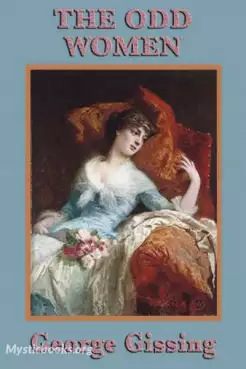
The Odd Women
The Odd Women is an 1893 novel by the English novelist George Gissing. Its themes are the role of women in society, marriage, morals and the early feminist movement.
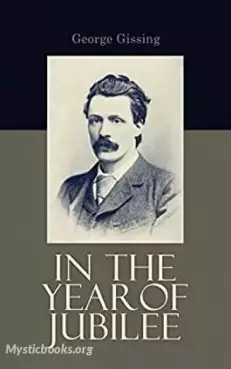
In the Year of Jubilee
In the Year of Jubilee is the thirteenth novel by English author George Gissing. First published in 1894. In the summer of 1893 Gissing returned to London after living for two years in Exeter, and took lodgings with his second wife at 76 Burton...
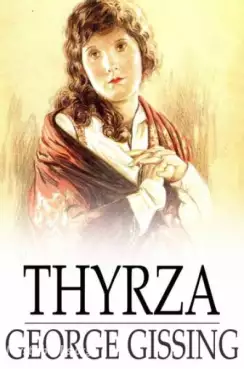
Thyrza
Thyrza is a working class woman. Three men are in love with her. Even though she is engaged to a man of her class, who is very kind, she falls in love with a rich Oxford student who has no idea what to do with his life. The man, in turn, falls in lov...
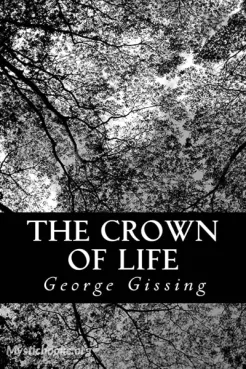
The Crown Of Life
This is a compelling novel that takes readers on a journey through the tumultuous lives of its characters. Set against the backdrop of Victorian England, this thought-provoking story explores themes of ambition, love, and the search for personal fulf...
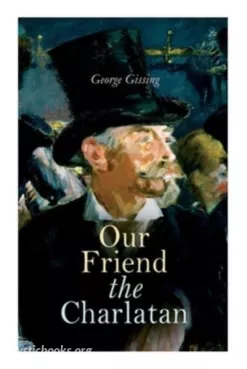
Our Friend The Charlatan
This is a captivating novel that delves into the complexities of human nature and the consequences of deception. Written in the late 19th century, this literary masterpiece showcases Gissing's remarkable storytelling skills and profound understanding...
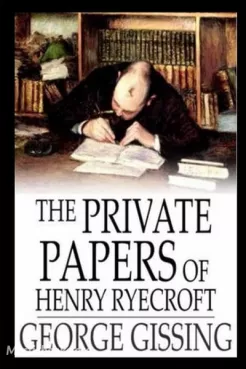
The Private Papers of Henry Ryecroft
In the quiet corners of literary history, nestled amid the forgotten pages, lies a masterpiece waiting to be rediscovered: "The Private Papers of Henry Ryecroft" by George Gissing. Venture into a world where the profound intertwines with the everyday...
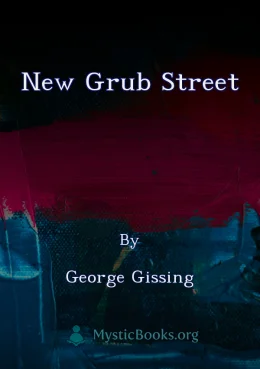
New Grub Street
New Grub Street is a bleak and realistic portrayal of literary life in late Victorian London. It follows the intertwined lives of two young writers, Edwin Reardon and Jasper Milvain, as they navigate the harsh realities of poverty, artistic struggle,...

Paying Guest
Set in late Victorian London, *The Paying Guest* explores the dynamics of class and social hierarchy through the lens of a young woman seeking a respectable lodging. Miss Derrick, a refined and independent woman, becomes a paying guest in the home of...
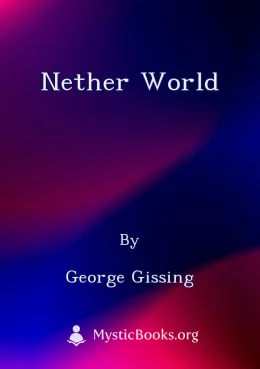
Nether World
This novel revolves around the problematic issue of money. Michael returns from Australia a rich man, but he hides this fact from everybody. Instead of indulging in luxuries, he only spends money on the things he needs. He contemplates leaving his mo...

Life's Morning
Life's Morning follows the story of Emily Hood, a young woman of humble origins who finds herself working as a governess for a wealthy family. She falls deeply in love with Wilfrid Athel, the son of her employer, and they become engaged. However, the...

Demos: A Story of English Socialism
Demos is a thought-provoking and introspective novel that delves into the complexities of socialism, wealth, and personal transformation. Richard Mutimer, a fervent socialist, inherits a significant fortune. Initially, he envisions using his newfou...
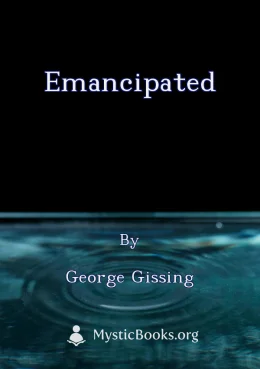
Emancipated
In 'Emancipated' by George Gissing, a group of British expatriates journey to Italy, seeking liberation from the restrictive social norms of Victorian England. They find themselves immersed in a culture that offers them unprecedented freedoms, but al...
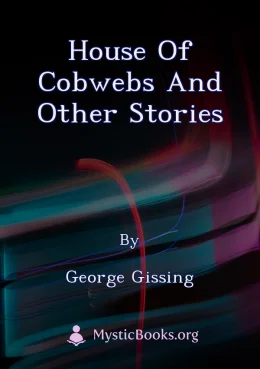
House of Cobwebs and Other Stories
George Gissing, a prolific English writer, delves into the complexities of human nature in "House of Cobwebs and Other Stories." This collection showcases his ability to weave narratives ranging from the humorous to the tragic, providing insightful s...

Will Warburton
Will Warburton is a story about a young man who loses his money in a failed business venture and must come to terms with his new job as a grocer. It is a powerful and moving story about the meaning of money, status, and love.

Town Traveller
The Town Traveller is a novel by George Gissing that tells the story of a British salesman living in a lower class part of London in the Victorian era. The story depicts his interactions with his neighbors, and thus brings us images and vocabulary of...